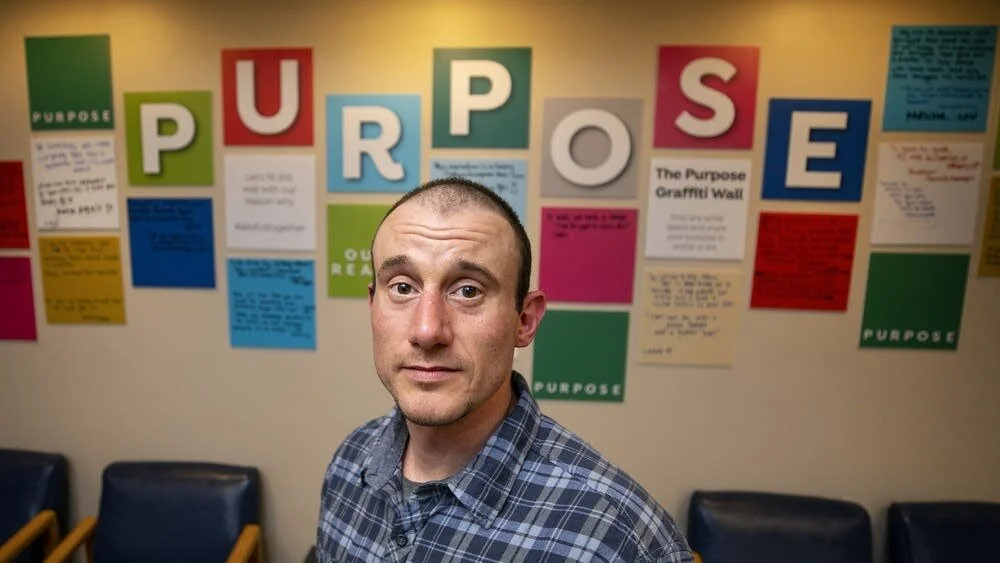Nearly two-thirds of Minnesota's homeless population has a mental illness, according to a new study from the Wilder Foundation. The results are based on a survey of nearly 4,300 people experiencing homelessness.
Read MoreYou can start the conversation about mental health with your primary care physician, but when is it time for you or your doctor to take the next step and book an appointment with a psychologist or psychiatrist?
Read MoreMPR’s Angela Davis talks with Jenifer Lewis about her book "The Mother of Black Hollywood: A Memoir,” her work spreading awareness about bipolar disorder, and the issues she wants to tackle next.
Read MoreStearns County officials estimate nearly two-thirds of people in the jail on any given day have a mental illness, either diagnosed or not .So Stearns County, along with CentraCare, local law enforcement and the St. Cloud VA, formed an action team of police, human services, probation agents and mental health workers. They meet and compare notes on people in jail or in the community who might benefit from intervention.
Read MoreThis hour-long program is about talking to white kids about race and racism: how white parents, families and teachers can learn to show up for racial justice in a way that will make a difference for generations to come. The show explores a wide variety of approaches with kids of all ages.
Read MoreLong waits for an appointment and pop culture stereotypes of lying on a couch are enough to turn many off from seeking mental health services. But Dr. Jon Hallberg, medical director of the University of Minnesota Physicians Mill City Clinic, says it can be as easy as talking to your primary care physician.
Read MoreThis hour-long program is about loneliness: what it is, why so many of us feel it, and the surprising toll loneliness takes on our physical and mental health.
Read MoreDr. Drew Ramsey calls himself a nutritional psychiatrist. He’s an avid researcher of the connection between food, brain function, and mental health at Columbia University – and, he’s a farmer. Contributor Shauna Sever spoke to Dr. Ramsey about his work and how we can work more brain-boosting foods into our diet.
Read MoreThis hour-long program is about asking for help: why it's so hard to admit when we need something from another person, and the surprising effects that sharing our vulnerability can have on our mental health. The episode explores how shame and stigma can prevent us from asking for what we need, why we tend to underestimate the generosity of others, and how asking can make us feel seen in both welcome and uncomfortable ways.
Read MoreIn February, a federal judge in California ruled the Minnetonka-based health insurer denied claims for behavioral health care based on overly restrictive guidelines that put profit over patients. Now, in a proposed remedy, the plaintiffs' attorneys want UnitedHealth to adopt new guidelines and take another look.
Read MoreThe first of a four-part series of special programs for Mental Health Awareness Month. Psychiatrist Dr. Anne Hallward hosts this series, which focuses on subjects that are hard — but important — to talk about. The first episode is about apologies and forgiveness.
Read MoreFor today's 9:30 Coffee Break, what songs do you want to hear that have helped you out by supporting your mental well-being?
Read MoreJenna Erickson first realized she might have borderline personality disorder when she read about it in her high school psychology textbook. Erickson spoke with Cathy Wurzer about her experience, and some of the biggest misconceptions around living with mental illness.
Read MoreThis week on Listen to Looch, Mary Lucia talks with Sam Choo, content manager at Call To Mind, Minnesota Public Radio's mental-health initiative.
Read MoreTwo experts join MPR News host Angela Davis to talk about mindfulness meditation. They discuss what it is, how to do it and what the research says about how it affects us.
Read More50,000 are people challenging UnitedHealth's standards for behavioral care. U.S. Chief Magistrate Judge Joseph C. Spero recently ripped the Twin Cities-based insurer for placing an "excessive emphasis" on paying for treatments during a crisis while ignoring "effective treatment of ... underlying conditions."
Read MoreEvery year, nearly 30 million Americans see a therapist — and some of those patients are therapists themselves. What does that mean? Simply that therapists are human.
Read MoreArgosy University, a national for-profit college with a big campus in Eagan, Minn., suddenly closed last month. Argosy had carved out a specialty in mental health care. It once trained about a fifth of the Twin Cities' licensed psychologists, by one former dean's estimate. Its closing has left students stranded and local mental health leaders worried about how to meet the state's already widening demand for psychologists.
Read MoreJames Densley, a special education teacher, and Rick Kaufman, executive director of community relations and emergency management for Bloomington Public Schools, join Angela Davis to talk about potential safeguards schools can put in place to help prevent gun violence.
Read More











